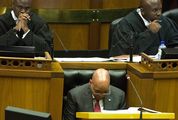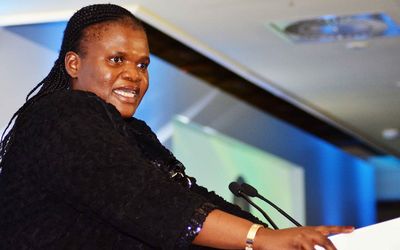THE battle e.tv is waging over the government’s policy on television set-top boxes has gone to the Supreme Court of Appeal in a case that could have far-reaching consequences for free-to-air television.
At issue is the encryption capability of 5-million free set-top boxes that the government will provide when SA migrates from analogue to digital.
In March last year, Communications Minister Faith Muthambi amended the government’s policy to say that the government-supplied boxes shall not have the technology to unscramble encrypted broadcasts.
E.tv has said that if this was allowed to stand, the free-to-air channel would effectively be barred from encrypting its broadcast.
Pay-TV channels use encryption to ensure that only those who have paid will receive their broadcasts. While this is not necessary for the reception of free-to-air broadcasts, e.tv has insisted that the capacity to encrypt in future is an essential part of its long-term business plan and will mean a more competitive television offering.
E.tv, supported by nongovernmental organisations including the SOS Support Public Broadcasting Coalition, argues Ms Muthambi’s policy change is not in the public interest.
In written argument filed in the Supreme Court of Appeal yesterday, their counsel Max du Plessis said the SABC’s support for M-Net was due to a R500m agreement with M-Net’s parent Multichoice, obliging the SABC not to encrypt certain channels upon the migration to digital.
The High Court in Pretoria found nothing wrong with the minister’s decision and that the government should not have to bear the cost of facilitating the "private, commercially motivated objectives of individual broadcasters".
But in Monday’s written argument, Steven Budlender, counsel for e.tv, said the minister had acted outside of her powers under the Electronic Communications Act because decisions about set-top box control could be taken only by the independent regulator, the Independent Communications Authority of SA (Icasa).
The constitutional and legislative scheme was "at pains" to avoid the government having any control over how broadcasters operate, he said.
While Ms Muthambi had repeatedly said the policy left the option open for broadcasters to provide for encryption at their expense, the policy change did the opposite, he said.
It prevented e.tv from ever being able to encrypt unless it manufactured and distributed its own 5-million set-top boxes. This would cost about R3bn — about two years of e.tv’s annual revenue. The option was "entirely unrealistic and illusory".
Mr Budlender said the policy change had been made without a crucial consultation process with the public and regulators, Icasa and the Universal Service and Access Agency of SA, as required by the act.
Even though there was consultation earlier, the amendment was so different that a further round of consultations was warranted, he said.
The government, SABC and M-Net are yet to file written argument.
The digital migration process took a step forward last month with the announcement that the period of dual illumination for the digital broadcasting signal will begin on February 1.
In this transitional phase, analogue and digital signals will be broadcast until most people have set-top boxes. No time-frame has been set but the government has begun to distribute set-top boxes to the poor.
It is understood analogue signals to specific areas will be terminated in a progressive manner once residents have been given set-top boxes.



















Change: 2.48%
Change: 2.53%
Change: 2.08%
Change: 1.97%
Change: 5.33%
Data supplied by Profile Data
Change: 0.00%
Change: 0.00%
Change: 2.48%
Change: 0.00%
Change: 0.00%
Data supplied by Profile Data
Change: 0.44%
Change: 0.11%
Change: -0.76%
Change: -0.92%
Change: -0.23%
Data supplied by Profile Data
Change: 0.00%
Change: 0.00%
Change: 0.00%
Change: 0.00%
Change: 0.00%
Data supplied by Profile Data